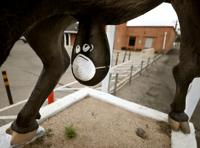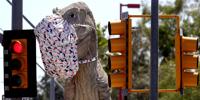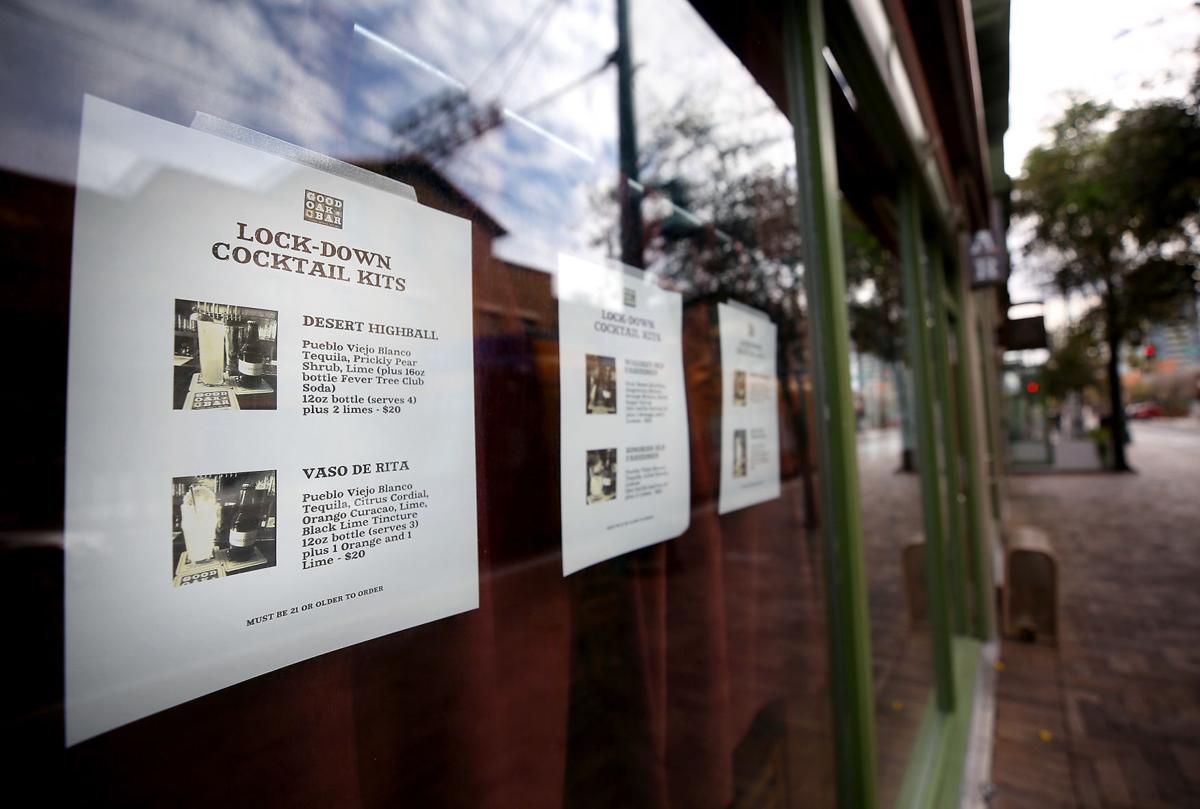PHOENIX — Gov. Doug Ducey’s order shuttering bars remains intact, at least for now, a judge ruled Tuesday.
Judge Pamela Gates of Maricopa County Superior Court spurned a request by the owners of more than 100 bars and taverns. They wanted to block enforcement of executive orders that forbid bars from opening while allowing operation of restaurants with liquor licenses to continue to serve clients.
The judge said Ducey’s orders “are rationally related to expert data and guidance on minimizing the spread of COVID-19 in our community.”
In her 14-page ruling, Gates said she saw no evidence the orders cause irreparable harm to the bar owners. That’s one of the factors judges are required to consider when determining if a law or order can remain in effect while it is being challenged.
On paper, Tuesday’s order does not end the legal fight. Gates still has to decide whether a full-blown trial is needed or whether to dismiss most of the claim.
But an attorney for the bars, Ilan Wurman, conceded the chances are slim of convincing Gates that Ducey’s actions are illegal. So he’s already considering taking the case to the state Court of Appeals.
Tuesday’s ruling was not a complete loss for Wurman and his clients.
Gates said the decision by Ducey to allow restaurants to sell alcoholic beverages to go — something prohibited by state law — “impermissibly stretches” the governor’s emergency powers. That paves the way for Gates to declare such “off-premises” sales illegal.
The dispute involves decisions made by Ducey going back to March about which kinds of businesses had to close in a bid to slow the spread of COVID-19. He originally ordered all bars and restaurants closed.
Ducey relented in May, allowing both types of businesses to operate under certain guidelines. But when that resulted in a spike in COVID-19 cases, he partly reversed course.
Under the current version of his order, establishments licensed as bars cannot open. But establishments licensed under state liquor laws as restaurants — meaning they derive at least 40% of their revenue from food — are allowed to operate.
The governor said bars can open if they apply to the Arizona Department of Health Services and detail how they will change their operations to be more like a restaurant. That means being led to a seat by a staffer, having to wear a mask except while eating and drinking, and having to remain at a table, with no mingling or informal meet-and-greet. Dancing, darts and pool are definitely out, state health officials have said.
Gates first rejected Wurman’s arguments that the Legislature acted unconstitutionally in giving broad powers to any governor who declares an emergency. She said those laws only entitle Ducey to actions “consistent with existing law and the Arizona Constitution.”
The judge also rejected claims that it was discriminatory to shut down bars but allow restaurants to not just remain open but to continue serving alcohol.
She pointed out that Ducey has relied on recommendations from the U.S. Centers for Disease Control and Prevention as well as the White House Coronavirus Task Force, both of which have said there are reasons to distinguish between traditional bars, whose primary business is the sale of alcoholic beverages, and restaurants.
Gates cited statements submitted by Dr. Marjorie Bessel, chief clinical officer at Banner Health, who said bars “pose a uniquely dangerous environment for the spread of COVID-19.”
Those factors, Bessel said, include the fact that bars typically feature loud environments “which result in raised voices and greater projection of orally emitted viral droplets and cause people to lean in to each other when speaking, posing a greater threat of transmission.”
Bessel said dancing at bars, coupled with limited ventilation, also results in an environment where respiratory droplets are more easily spread.
And finally, it’s a question of age, the Banner official said. “Bars tend to attract a younger adult population, which currently represents the highest demographic carrying COVID-19 in Arizona,” Bessel said.
Gates said she was convinced, and that bar patrons “often linger for hours, mixing with different individuals and groups.”
“The consumption of alcohol, even when not to the point of intoxication, can dull one’s sense of caution,” the judge wrote. “In addition, mask wearing is incompatible with sipping and sharing drinks.”
The judge said there’s another key difference.
At a restaurant, she said, a server routinely comes to the table to tend to patrons.
“Bargoers often mingle throughout the bar and seek out a new drink from the bar top or a server spotted across the establishment,” Gates wrote.
The restrictions on bars are based on weekly reports of the pandemic in each specific county, the judge noted. The risk of spread has already diminished to the point where bars can reopen in Greenlee and La Paz counties based on health conditions there.
Elders and their family members can once again embrace each other through a "Hug Tunnel" constructed at the St. Luke's Home in Tucson. Linda Hollis, chief executive officer, says the idea came from a news report about a nursing home in Brazil that made a tunnel.
Photos: In Tucson, face masks are for more than just people
Face masks on objects
Updated
A Jeep sports with eyes like those from the movie "Cars" sports a COVID19 mask outside Alpha Graphics near the corner of Tanque Verde and Kolb, Tucson, Ariz., July 3, 2020.
Face masks on objects
Updated
The large Tiki head at the entrance of The Hut, 305 N. 4th Ave., wears a mask in response to the Coronavirus Disease (COVID-19) in Tucson, Ariz., on April 5, 2020.
Face masks on objects
Updated
The noted bull testicles on the statue outside Casa Molina at Speedway and Wilmot, usually painted in various schemes and wild colors, are in these CONVID19 times now sporting a face mask, March 27, 2020, Tucson, Ariz.
Face masks on objects
Updated
A dinosaur statue over the doors of MATS Dojo at 5929 E. 22nd St., sports an athletic cup for a face mask in the second week of COVID-19 restrictions, March 31, 2020, Tucson, Ariz.
Face masks on objects
Updated
The venerable T-Rex outside the McDonald's at Grant and Tanque Verde comes around late, but strong, to the mask game, May 13, 2020, Tucson, Ariz.
Face masks on objects
Updated
The iconic Casa Molina bull and matador statue both sported masks on the first full week of the loosening of COVID-19 restrictions in mid-May.
Face masks on objects
Updated
Father Kino's horse practice safe social interaction by wearing a mask even if Father Kino himself isn't. The statue sits at Cherry Fields at 15th Street and Kino Boulevard, Saturday, May 2, 2020, Tucson, Ariz.





